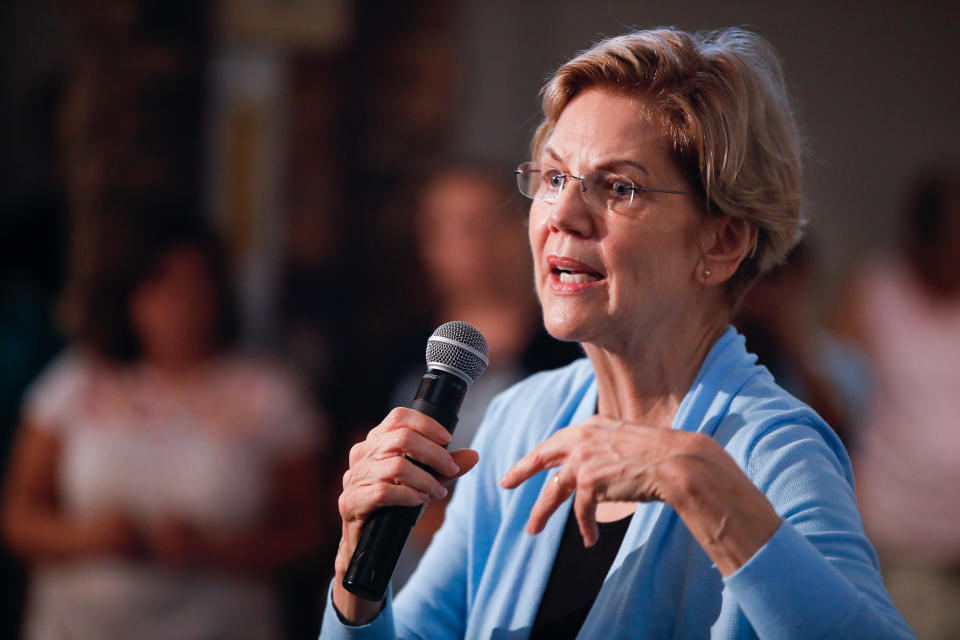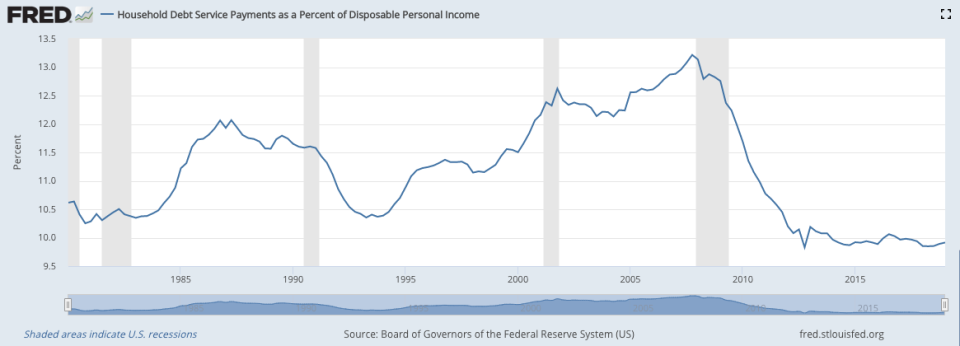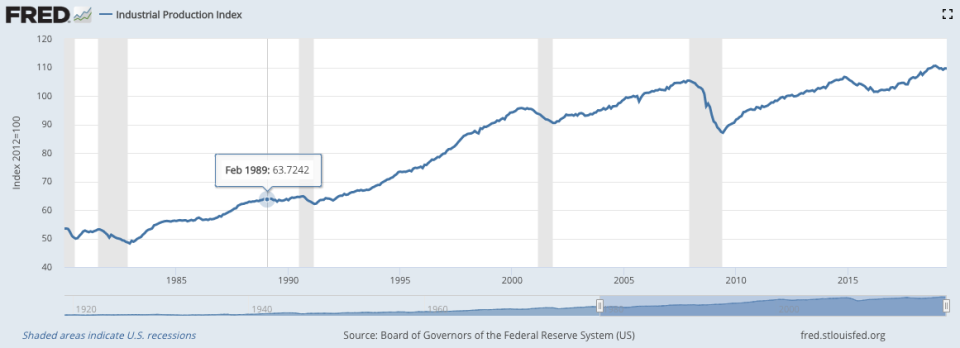Elizabeth Warren is a prophet of doom
If you want to believe Armageddon is coming, Elizabeth Warren is your presidential candidate.
In a new post on Medium, the Democratic senator from Massachusetts warns of “the coming economic crash.” “Warning lights are flashing,” she writes. “Whether it’s this year or next, the odds of another economic downturn are high—and growing.”
Subscribe to Rick’s podcast here
Should you start stockpiling canned goods and gold? Hardly. Warren’s doomsaying reflects more of a political calculation that an economic one, as Democrats look for ways to ding President Donald Trump despite low unemployment, strong profits and record stock-market highs. It’s a tough sell, which is why Warren and some fellow Democrats predict American carnage if Trump wins another four years.
Warren, who has risen to top-tier status in the polls, claims she predicted the last downturn, which ran from 2007 to 2009. She’s more or less right, but that might have been a fluke as much as anything else. Warren is a longtime Wall Street critic who for years has complained that banks are lording it over borrowers through high interest rates and come-ons that trap people in debt. That made her warnings about the evils of big banks seemed prescient when the 2008 financial crash hit. But Warren didn’t foretell the Ponzi-style housing bubble, vast underwriting abuses or other specific causes of the 2008 meltdown.

Still, she claims to have a proven track record predicting bad things. So what is she warning about now? Ruinous debt loads, among both consumers and businesses. A manufacturing recession that could ravage blue-collar workers. Brexit and its possible ripple effect on the U.S. economy. And signs a recession may already have started.
Her solutions, not surprisingly, are Warren plans such as raising the minimum wage to $15, forgiving student debt and instituting a new green manufacturing program.
Reality, however, is different from what Warren portrays. The New York Federal Reserve says the probability of a recession within 12 months is 33% – not low, but not “high,” as Warren claims. Morgan Stanley puts the odds of a recession at a scant 13%.
Warren points out that the yield curve inverted in March—with 10-year interest rates dipping below three-month rates. That’s often a warning of recession. But a more common measure of the yield curve—comparing 10-year and 2-year rates—has not inverted, and is therefore not predicting a recession.

Other supposed danger signs in “our precarious economy,” as Warren calls it, aren’t as bad as she claims, either. She laments, for instance, that Americans have taken on “more debt than ever before.” That’s generally true, measured in total dollars. But it’s not alarming. As the economy and the U.S. population grow, it’s natural that the amount of debt consumers hold would also grow. And as a percentage of income, consumer balance sheets are in good shape. Consumer debt as a percentage of total income is 9.9%, according to the Federal Reserve. That’s almost the lowest level on record, dating to 1980. It peaked at 13.2% at the end of 2007, when the last recession began. Consumers are actually far less indebted than they used to be.
Warren claims we’re in the midst of a manufacturing recession, as well. Eh, not really. There’s been a dip in industrial production this year, but there was a much steeper decline in 2015, and that didn’t trigger a recession. Manufacturing employment, meanwhile, has risen by 36,000 jobs so far this year.

What’s really happening is that economic growth is slowing from 2.9% in 2018 to around 2% this year. That’s not great, but a recovery now in its 11th year continues to chug along. Warren knows no more than anybody else about whether a “crash” is coming, and smart economists know that predicting recessions is a sure way to make yourself look foolish.
There are legitimate problems in the economy, such as supbar education, chronic poverty in some areas, and a lack of workers with the modern skills employers need. And Trump does have vulnerabilities on the economy. His trade war is hurting farmers and probably contributing to the economic slowdown. The tax cuts he championed in 2017 helped the wealthy more than the middle class. And he hasn’t lowered prescription drug prices as promised, or done much of anything to make health care cheaper. That’s where the warning lights are flashing.
Rick Newman is the author of four books, including “Rebounders: How Winners Pivot from Setback to Success.” Follow him on Twitter: @rickjnewman
Confidential tip line: [email protected]. Encrypted communication available. Click here to get Rick’s stories by email.
Read more:
Democrats are attacking the wrong companies
Biden’s health care plan is a potent weapon against Trump
Everybody running for president is rich
Elizabeth Warren’s best and worst economic ideas
Medicare for all won’t work. This might
Read the latest financial and business news from Yahoo Finance
Follow Yahoo Finance on Twitter, Facebook, Instagram, Flipboard, SmartNews, LinkedIn, YouTube, and reddit.
